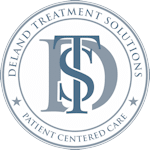The act of reintegrating into society after addiction treatment is a significant obstacle for people in recovery. Someone might spend time in an alumni program and yet slip into old behaviors. However, a 12-step mental health maintenance program may be able to assist you in preventing a relapse.
DeLand Treatment Solutions’ 12-step mental health program in DeLand, Florida, has helped millions overcome drug and alcohol addiction for decades. As mental health therapies have advanced, it’s reasonable to question if the 12-step program is still as successful as it once was.
What is a 12-Step Program?
The 12-step program is a method for promoting the belief that addiction recovery is attainable via peer support and spiritual development. If you are unfamiliar with the 12 steps of addiction, they are nearly identical to Alcoholics Anonymous (AA), a well-known alcohol support organization across the world.
This treatment approach is a popular tool for addiction rehabilitation across the world. This therapy approach is also used in many support groups and supplementary mental health sessions for people who have completed treatment.
The 12-Step Approach
Because we all have unique characteristics and addictions, treating addiction needs a unified strategy. 12-step programs for mental health used this personalized approach to address varied addictions, but they still adhered to the original 12 stages from the 1930s. The fundamental distinction between the approaches is the nature of the addiction. The 12 steps are as follows:
- Admitting helplessness over addiction.
- Believing that a higher power (in whatever form) can aid
- Deciding to transfer control to a higher power.
- Taking a Personal Inventory.
- Admitting wrongdoing to the greater authority, oneself, and another individual.
- Accepting and requesting correction from a higher authority for personal flaws.
- Making a list of wrongs done to others and being willing to make apologies.
- Contact individuals who have been wounded, unless doing so harms the person.
- Continuing to conduct personal inventory and acknowledging one’s mistakes.
- Seeking enlightenment and connecting with the higher power via prayer and meditation.
- Spreading the 12 Steps message to those in need.
The program’s goal is to improve your spiritual well-being and connect you with others who understand your present circumstances.
How Does 12-Step Facilitation Work?
Meetings, similar to group therapy programs, allow participants to interact with others on the same spiritual journey. The meetings are open to the public, including friends and family. There are also closed meetings, but only members may attend.
Once you work your way through the 12 stages or have shown devotion and growth to the program, you can act as a mentor to others. When you enroll in these programs, you have the choice of selecting a mentor or having one recommended to you.
A mentor will be at your side to guide you through the process, but they may also be able to assist you with any extra needs that arise as you transition to sobriety. These may involve budgeting and job applications.
How Effective is the 12-step Program?
Before we evaluate the efficacy of 12-step programs, keep in mind that efficacy is relative, which means that how successful anything is is determined by your aims. If you want to be free of substance misuse, 12-step programs are incredibly effective.
12-Step participants may use the term “it works if you work at it,” which refers to committing to a whole program and completing the 12 Steps with your sponsor. If you invest fully, the program will be beneficial to you. However, the research and effectiveness rates differ.
12-step programs are extremely successful in increasing the likelihood of long-term sobriety in persons who are non-comorbid, which means they have a drug use problem but no other mental health disorders. A New York City research indicated that 12-step programs are very beneficial for those suffering from drug use disorders and co-occurring mental health concerns.
Other studies have found that many people drop out of 12-step programs, namely 40% during the first year. Overall, 12-step programs remain one of the most effective and proven approaches for encouraging long-term abstinence from drug misuse and supporting successful transitions to abstinence for those suffering from substance use disorders (SUDs). They focus and strive to establish in their members the virtues of trust, community, sobriety, acceptance, and continuous self-improvement.
Contact Us
CALL US NOW
DeLand Treatment Solutions will iron out the details for you in a manner that will make you confident in your path to sobriety. That first simple call is your ticket to making DeLand Treatment Solutions your solution for addiction. Get the freedom from addiction that you deserve today.
Call Us Now (386) 866-8689Benefits of the 12-Step Therapy Program
12-step programs offer a range of benefits for people struggling with addiction and other compulsive behaviors. Here are some of the key advantages:

Sober Community: One of the most powerful aspects is the creation of a ready-made sober community. Regular meetings connect you with others who understand your challenges and provide encouragement and support.
Structure and Accountability: The 12-step process offers a clear roadmap for recovery, with steps guiding you through self-reflection, amends, and living a new life.
Supportive Relationships: Programs often involve sponsors, and experienced members who offer guidance and mentorship.
Empowerment: The 12 steps emphasize taking responsibility for your recovery. This approach helps you move away from feeling like a powerless victim and instead become an active participant in your well-being.
Reduced Substance Use: Research shows that people who participate in 12-step programs alongside professional treatment tend to have better outcomes in terms of reducing or eliminating substance use.
Improved Mental Health: Studies suggest that complete abstinence, as advocated in most 12-step programs, can lead to better long-term mental health for those struggling with addiction.
It’s important to remember that 12-step programs aren’t for everyone. Some people may find the focus on a higher power or the group setting to be a challenge.
Enroll in the 12-Step Mental Health Treatment Program at DeLand Treatment Solutions

If you’re considering 12-step therapy, it’s worth exploring different programs to find one that feels like a good fit. To find out more about your treatment choices, call (386) 866-8689 or visit DeLand Treatment Solutions now.

Years of experience
Our leadership team has extensive experience in dual-diagnosis treatment and is ready to help those who are struggling with substance use and mental health.

Specialists
Our staff consists of many licensed mental health treatment facilitators and other staff who are ready to share their experience and their success.

Happy patients
Deland Treatment Solutions has helped over 2,000 people who have struggled with mental health problems find freedom to normal and healthy life.
Contact Us
GET IN TOUCH
Reaching out to Deland Treatment Solutions may be the most important call of your recovery process. A caring professional is waiting for your call to be your guide to addiction-free living.
 info@shc.health
info@shc.health 